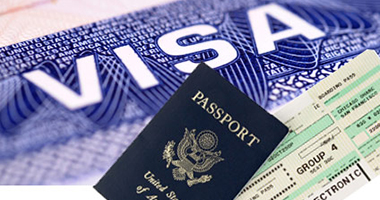From 1 July 2020, new immigration laws have come into effect in Vietnam in relation to Visas and Temporary Resident Cards (“TRC”) for foreign individuals. As background, on 25 November 2019, The National Assembly of Vietnam approved Law 51/2019/QH14 (“New Immigration Law”) on amending and supplementing a number of articles of the Law on Entry, exit, transit and residence of foreigners in Vietnam No. 47/2014 / QH13 (“Old Immigration Law”), which is effective from 1 July 2020.
(Note: certain changes arising under the New Immigration Law are impacted by the Vietnamese Government’s current border closures in response to Covid-19. The application of a number of these changes are presently suspended for individuals who are currently located outside of Vietnam, and full implementation will only be likely when borders are reopened fully.)
Notable changes arising from the New Immigration Law that foreign individuals in Vietnam, or those seeking to enter Vietnam, should be aware of are:
1. E-VISA’S ARE NOW A FORMAL ELEMENT OF IMMIGRATION LAWS
a) Definition: an “E-Visa” is a Visa issued via an electronic transaction. Foreign individuals can apply for an E-Visa via https://evisa.xuatnhapcanh.gov.vn/en_US/
E-Visas were first implemented in Vietnam in 2017, however the implementation was initially only a pilot scheme and was not officially regulated by law, leading to limitations with the program. From 1 July 2020, E-Visas are officially regulated in law.
b) Nationals eligible for the issuance of an E-visa and international border checkpoints for entry and exit:
Citizens from 80 countries are now approved for the issuance of E-Visas.
A full link of eligible countries can be found at:
https://evisa.xuatnhapcanh.gov.vn/documents/20181/117155/Vietnam-Evisa-nation-list.pdf/
A list of borders that permit foreign individuals to enter into and exit Vietnam using an E-visa is maintained here: https://evisa.xuatnhapcanh.gov.vn/documents/20181/117155/List-of-evisa-port.pdf/
c) Procedures: Foreign individuals, agencies and organizations are entitled to submit applications for E-Visas:
- Declaration of information via online application form for issuance of E-Visa, including uploading photo and passport details, at the nominated website for issuance of E-Visas; and
- Payment of fees for visa issuance via the accounts specified on the website for the issuance of E-Visas.
- Timeline: 3 working days
- Procedures for issuance of electronic visas requested by agencies and organizations
- Initial registration of an electronic account with Immigration Authorities for E-Visa requests;
- Using the electronic account to access the website for the issuance of E-Visas, to request the issuance of an E-Visa for a foreign individual; and
- Payment of fees for visa issuance via the accounts specified on the website for the issuance of E-Visas.
- Timeline: 3 working days (initial account registration) + 3 working days (E-Visa result)
d) E-Visa Duration:
E-Visas cannot exceed 30 days in duration. Also note that E-Visa are single entry only.
2. VISA TYPES CAN NOW BE CHANGED IN-COUNTRY
Under previous immigration laws, foreign individuals were granted a visa suitable for the purpose of their entry into Vietnam in accordance with the declaration of the applicant, and the purpose of the visa could not be changed without leaving the country and re-entering Vietnam for a different purpose. However, from 1 July 2020, Immigration Laws permit a number of cases where the visa purpose can be changed in-country without any requirement to leave Vietnam. These scenarios are detailed below:
- Where a foreign individual holds relevant documents detailing that they are an investor or a representative for foreign organization investing in Vietnam;
- Where a foreign individual holds relevant documents demonstrating their relationship with a person inviting or sponsoring in terms of parents, spouse or children;
- Where a foreign individual is invited or sponsored by an organisations and holds a work permit (or confirmation of eligibility for a work permit exemption) according to labour laws; or
- Where a foreign individual enters Vietnam using an E-Visa and holds a work permit (or confirmation of eligibility for a work permit exemption) according to labour laws.
3. VISA CATEGORIES EXPANDED, TO MORE CLEARLY EXPRESS THE PURPOSE OF ENTRY INTO VIETNAM
a) DT Visa: previously issued to foreign investors in Vietnam and foreign lawyers practicing in Vietnam. The new Immigration Law replaces the DT Visa category with five new categories LS, DT1, DT2, DT3, DT4. These are permitted for the following purposes:
- LS Visa – issued to foreign lawyers practicing in Vietnam.
- DT1 Visa – issued to foreign investors in Vietnam, or representatives of foreign organizations investing in Vietnam, who contribute capital of at least VND 100 billion into a company in Vietnam (or a company which has business lines and administrative divisions given investment incentives determined by the Government).
- DT2 Visa – issued to foreign investors in Vietnam, or representatives of foreign organizations investing in Vietnam, who contribute capital of at least VND 50 billion into a company in Vietnam (or a company that has business lines encouraged to invest as determined by the Government).
- DT3 Visa – issued to foreign investors in Vietnam, or representatives of foreign organizations investing in Vietnam, who contribute capital of at least VND 3 billion into a company in Vietnam.
- DT4 Visa – issued to foreign investors in Vietnam, or representatives of foreign organizations investing in Vietnam, who contribute capital of less than VND 3 billion into a company in Vietnam.
*LS, DT1 and DT2 Visas are issued for a maximum of 5 years, DT3 Visa is issued for a maximum of 3 years and a DT4 Visa is for a maximum of 1 year.
b) DN Visa: this category is replaced by DN1 and DN2 Visas under the New Immigration Law. DN1 and DN2 Visas are issued for a maximum of 1 year.
- DN1 Visa – issued to foreign individuals who work with enterprises or other organizations in accordance with the law of Vietnam.
- DN2 Visa – issued to foreign individuals who enter into Vietnam to promote services, establishing a commercial presence, or conducting other activities in accordance with international agreements to which Vietnam is a signatory.
c) LD Visa: the New Immigration Law has amended this category into two, LD1 and LD2, as follows:
- LD1 Visa – issued to foreign individuals working in Vietnam and holding a work permit exemption certificate, except for roles covered by international agreements to which Vietnam is a signatory.
- LD2 Visa – issued to foreign individuals working in Vietnam and holding a work permit.
*LD1 and LD2 Visas are issued for a maximum of 2 years.
4. TEMPORARY RESIDENT CARD (“TRC”) CHANGES
As a result of changes to visa regulations, foreign individuals holding Visa categories of LS, DT1, DT2, DT3, LD1 or LD2 are entitled to obtain a TRC in Vietnam, which can have the a maximum duration is detailed below:
- DT1 TRC – maximum of 10 years.
- LS and DT2 TRC’s – maximum of 5 years.
- DT3 TRC – maximum of 3 years.
- LD1 and LD2 TRC’s – maximum of 2 years.
The duration of a TRC is dependent on the visa category, the application and the validity of the passport. Under previous laws, the maximum validity of TRC was 5 years, however, from 1 July 2020 large investor holding a DT1 Visa can now obtain a TRC for up to 10 years.
Author
Vlad Savin – currently active in business strategy and development, advising international investors with market entry and compliance governance in Vietnam and across the Asia region. He is a business development, finance and marketing professional, and has resided in Southeast Asia for the last 7 years. Vlad has a wide experience in personal and corporate finance, working with investment firms in Malaysia in Vietnam, with extensive knowledge in business consulting, strategic analysis, client engagement, marketing and events with international exposure. Vlad is Head of Business Development at Domicile Corporate Services, a corporate consulting firm which supports investors with market entry, licensing, incorporation, compliance and tailored advisory services.
Vlad can be reached at savin@ceecvn.org


